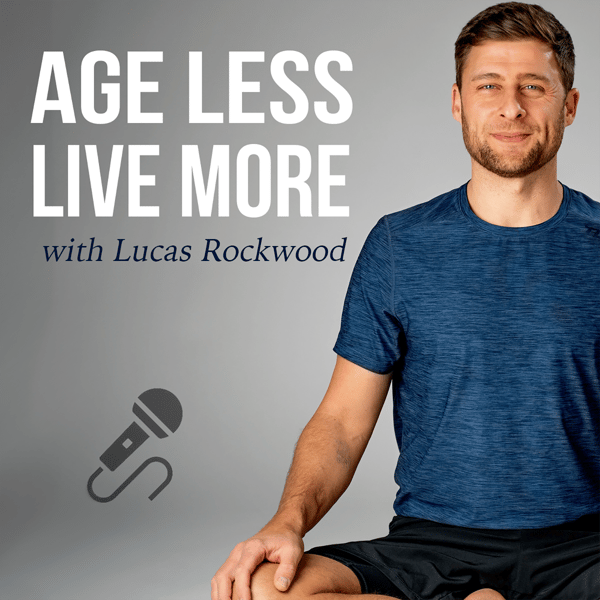385: Binaural Beats & Meditation with Cory Allen
Age Less / Live More
Lucas Rockwood
4.8 • 1.1K Ratings
🗓️ 13 November 2019
⏱️ 52 minutes
🧾️ Download transcript
Summary
I had a rough year in 2006. It was the year I opened my first yoga studio. I should have been on cloud nine, but I wasn’t ready for all that responsibility and all that stress. I had a staff of 12, hundreds of students, courses, a restaurant, and very little support. Mostly, I was alone. An old friend sent me some audio meditation tracks he’d be using that had a technology called binaural beats. I’d never heard of it, but I gave it a try. Right away, I felt something.
Technology and I have a complex relationship, but when it makes life easier, I’m a fan. Meditation is really hard, and anyone who tells you differently is actually just walking their dog (and calling it meditation). The real practices require deep work, and it’s very hard to do all alone at home, even with books and apps. This is why I love yoga breathing, and it’s also why frequency-following music can be very helpful, particularly when you’re just getting started or in a mental and emotional jam.
My guest on this week’s show is an audio engineer who makes meditation music, and he’ll share how this simple technology can potentially help you find more balance.
Links & Resources
About Our Guest
Cory Allen is an author, podcast host, meditation teacher, and audio engineer from Austin, TX. His first book, Now Is the Way, was just released. Cory has studied and produced music for over 15 years. He has released over a dozen albums.
Got Questions?
- Send me a voicemail here: Ask Lucas a Question
- Or write to us: [email protected]
Like the Show?
- Leave us a Review on iTunes
Transcript
Click on a timestamp to play from that location
| 0:00.0 | The interest in meditation and mindfulness has never been bigger in my lifetime |
| 0:08.6 | than it is right now. Every airport I'm in there's three books on meditation in the airport bookstore. |
| 0:15.0 | Everyone I know has at least one or two meditation apps on their phone. |
| 0:19.0 | There's TED Talks and Google Talks and speakers and keynote speakers talking about mindfulness and how meditation |
| 0:25.0 | save their life and it's really exciting except that unfortunately |
| 0:28.0 | it's mostly talk. Very few people are actually practicing. It's really not happening. It's mostly a lot of |
| 0:35.0 | talk and apps and books being sold and not a lot of people sitting down on the floor, crossing |
| 0:39.8 | the legs and closing their eyes. and you know why? |
| 0:42.8 | Because it's really hard and it's really intimidating. |
| 0:45.4 | And your worst friend is your own mind at 1030 at night |
| 0:49.1 | right before bed really. |
| 0:50.0 | It's an evil place. |
| 0:51.4 | I don't recommend visiting it without some guidance. And this is what |
| 0:55.3 | meditation confronts us with very often. Each and every year that passes there's more and more research |
| 1:02.0 | released on the benefits of meditation. |
| 1:04.0 | Whether it's reducing stress hormones like cortisol, |
| 1:08.0 | whether it's lengthening your telomeres, which are an indication for longevity, |
| 1:12.0 | whether it's creating a sense of peace or calm or |
| 1:14.9 | reducing anxiety or depression. Pretty clear link that mindful practices of all |
| 1:20.3 | types really improve these things, but how do you really follow through? |
| 1:24.0 | Well most people don't. There's a couple of tricks people use. We of course teach yoga |
| 1:28.8 | breathing here at yoga body which I find very effective because it gives you something to do and it's a lot more |
... |
Please login to see the full transcript.
Disclaimer: The podcast and artwork embedded on this page are from Lucas Rockwood, and are the property of its owner and not affiliated with or endorsed by Tapesearch.
Generated transcripts are the property of Lucas Rockwood and are distributed freely under the Fair Use doctrine. Transcripts generated by Tapesearch are not guaranteed to be accurate.
Copyright © Tapesearch 2025.

